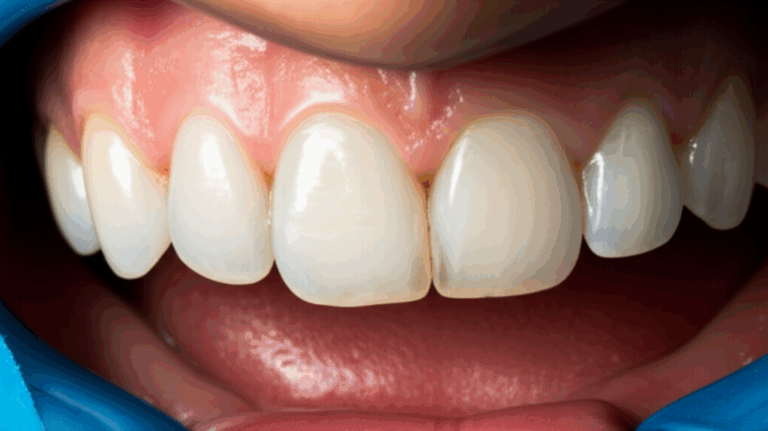
Are Dentists Skipping Root Canals? Understanding Modern Endodontic Care & Referral Trends
Ever wondered why your dentist doesn’t do root canals anymore, or why you’re getting sent off to see a specialist for a simple toothache? In this article, I’ll explain what’s really going on. You’ll discover how dental care is changing, why referrals are more common, and what your best options are when it comes to saving your teeth—and your smile. If you want to know what’s fact, what’s fiction, and how to make the smartest choices for your mouth, keep reading!
Table of Contents
- Why Do People Think Dentists Don’t Do Root Canals Anymore?
- Do Dentists Still Do Root Canals?
- When Does a General Dentist Refer You to an Endodontist?
- How Is Dental Technology Changing Root Canals?
- What Are the Alternatives to Root Canals?
- Why Is Saving Your Tooth So Important?
- What Should You Do If Your Dentist Recommends a Referral?
- Can You Prevent Needing a Root Canal?
- How Do Costs and Choices Compare?
- Is Dental Care Getting Better or Worse?
- FAQ (Frequently Asked Questions)
- Takeaways: What You Need to Remember
Why Do People Think Dentists Don’t Do Root Canals Anymore?
Let’s be honest. It feels annoying when your regular dentist suddenly says you need to see someone else for a root canal. You might wonder: “Do regular dentists not do root canals anymore? Did something change?”
Here’s what I hear. Some people say their dentist only cleans teeth and does fillings now. Others get sent to an endodontist even for a simple root canal. Maybe your friend had their tooth pulled instead of a root canal. You hear all these stories, and it gets confusing.
But you’re not the only one thinking this. Over the past 10 years, more people have seen this happening, and it makes them worry: “What’s going to happen to my tooth? Is there a new problem with root canals?” If you feel unsure or annoyed, you really just want clear answers.
Do Dentists Still Do Root Canals?
Yes, they still do! Dentists all over still do root canals every single day. Actually, root canals are one of the most common things dentists do. The American Association of Endodontists says about 15 million root canals happen every year in the United States alone.
But here’s the thing: Most general dentists (sometimes called GPs) still do some root canals, like on front teeth that are easier. But now, a lot send harder ones to dental specialists called endodontists. Endodontists are really good at root canal treatment. They have extra years of school, special tools like microscopes, and do hard cases all the time.
So if you get sent for a referral, don’t worry. Dentists aren’t quitting root canals. They just want you to get the best care possible—especially if your case is tricky.
When Does a General Dentist Refer You to an Endodontist?
Dentists want you to keep your teeth healthy. But sometimes, a job is just too hard or risky for someone who doesn’t do it every day.
Here’s why your dentist might refer you:
- Weird Roots: Back teeth (molars) or teeth with twisty or blocked root canals are harder to fix.
- Tried Before: If a root canal already failed, it’s even harder to fix again.
- Damage or Breaks: Broken or hurt teeth are just tougher to fix.
- Special Tools Needed: Endodontists use cool stuff—like 3D scans and microscopes—to see inside your tooth.
- More Practice: Endodontists do tough cases all the time, so they know all the tricks.
Think about it like this: If your car engine went out, would you want your regular mechanic to take a guess—or would you want the engine expert? Your dentist is trying to help, not just send you away.
How Is Dental Technology Changing Root Canals?
Dental care isn’t old school anymore. Actually, it’s changed a lot in just the past few years. Root canals are now safer, quicker, and hurt less—thanks to some neat new tools.
Here’s some of what’s new:
- Microscopes: These let dentists and endodontists see really tiny spaces inside your tooth that old methods missed.
- NiTi Files: These super-bendy tools clean out germs better, and shape the inside of your tooth without breaking as easily.
- Digital X-rays & 3D Scans: New pictures show the real shape of your tooth’s roots and any infection.
- Better Fillings: New materials keep germs out and help your tooth heal up.
If your regular dentist doesn’t have all this stuff, they might send you to someone who does. That way, your root canal can work out better, and you don’t get problems later.
What Are the Alternatives to Root Canals?
Sometimes you hear a tooth can’t be saved, or you don’t need a root canal. Here’s what you can pick from:
1. Root Canal Treatment
- Good Stuff: Saves your own tooth, you can keep chewing, stops the aching, helps the bone in your jaw.
- Bad Stuff: You’ll need a crown after, and it costs more than a filling.
2. Tooth Extraction
- Good Stuff: Quick and simple sometimes, might cost less at first.
- Bad Stuff: You get a gap, might lose bone, other teeth can move, and you’ll probably need to fill the empty spot.
3. Dental Implant
- Good Stuff: Feels and works like a real tooth, lasts a long time, helps the jawbone stay strong.
- Bad Stuff: Needs a surgery, costs more, takes more time.
4. Dental Bridge or Denture
- Good Stuff: Covers the space, lets you chew, and fix your smile.
- Bad Stuff: Not as strong as an implant or healthy tooth. Bridges can mess with the teeth next to the gap.
Most folks want to keep their own tooth if they can. Root canals make this work best. Always ask your dentist about all your options before you choose.
Why Is Saving Your Tooth So Important?
Here’s what I learned early: Nothing works as well as your real tooth—no matter how high-tech things get.
Why Save Your Tooth:
- Helps Eating: Your own teeth chew better and feel more normal.
- Keeps Teeth Straight: Teeth will move and lean if there’s a gap, so you get bite problems.
- Saves Jawbone: If you lose a tooth, you lose some bone, and your face can look different.
- Looks Real: Crowns over your real tooth look better than fake teeth or removable dentures.
Studies say that teeth fixed with root canals and crowns can last many years—sometimes as long as implants. But a pulled tooth is gone forever.
What Should You Do If Your Dentist Recommends a Referral?
It’s normal to feel worried or even a bit upset when you get sent to someone else. But here’s what you should do:
Remember—your dentist is not giving up. They just want you to have fewer problems and a better tooth in the long run.
Can You Prevent Needing a Root Canal?
Root canals are needed when the inside (pulp) of your tooth gets infected. That mostly happens from deep cavities, injury, or gum problems.
Here’s how to avoid them:
- Brush twice a day.
- Floss every day, or use floss picks.
- See your dentist for a cleaning and check-up every 6 months.
- Wear a mouthguard when playing sports or if you grind your teeth at night.
- Get cavities filled early—before they get deep.
Good habits keep your teeth stronger. The best way to fix teeth is to not need a fix at all!
How Do Costs and Choices Compare?
Money’s important—dental bills can get big. Here’s a simple table to show your choices:
| Treatment | What’s involved? | Average Cost (USD) | Good Stuff | Bad Stuff |
|---|---|---|---|---|
| Root canal + crown | Save tooth, cover with crown | $1,500 – $3,000 | Keeps your tooth, lasts | Needs a crown, not for all |
| Extraction + Implant | Remove, place implant | $3,000 – $6,000+ | Feels like real tooth | Surgery, higher cost |
| Extraction + Bridge | Remove, put bridge | $2,000 – $5,000 | Fixes your bite | Affects nearby teeth |
| Extraction only | Just remove tooth | $200 – $500 | Quick, lowest first cost | Teeth move, bone loss |
A cheap fix now can cost more later if you need more work. Keeping your own tooth is almost always better for your smile and your wallet!
Is Dental Care Getting Better or Worse?
Dental care gets better every few years. Dentists have better training, better gear, and better ways to work than ever before.
- Dental microscopes help find tricky root spots.
- Digital x-rays mean faster, safer checks.
- New materials like gutta-percha and tough crowns last longer.
- Safety is up, and infections are rare.
Kind of like how cars went from horses to electric, dentists are picking what works best now. More referrals don’t mean worse care—it just means care is more special for each person.
If you want to learn about the newest tooth-saving stuff, check out things like digital dental lab or crown and bridge lab. These labs help dentists make strong, real-looking fake teeth and crowns that last.
FAQ (Frequently Asked Questions)
Do all dentists still do root canals?
Most general dentists do root canals on simple cases (like front teeth). For back teeth or harder cases, they’ll usually send you to an endodontist.
Are root canals painful?
With new numbing, root canals feel a lot like getting a normal filling. You might be sore for a few days, but it’s not super painful like people say.
Is it better to get a tooth pulled?
Not usually. Pulling a tooth can cause more problems, like losing bone and teeth moving. A root canal keeps your tooth if it can still be saved.
Can my dentist do a crown after a root canal?
Yes! General dentists often put a crown on your tooth after a specialist does the root canal.
Is there a cheaper way to replace a missing tooth?
If you need to fill a gap, ask your dentist about bridges, partial dentures, or new options from a good china dental lab.
Takeaways: What You Need to Remember
- Root canals are still done, mostly by regular dentists for easy teeth, and by specialists for the tough ones.
- Your dentist sends you to an endodontist to make sure you keep your tooth if possible.
- New tools and gear make root canals safer and work better than ever.
- Saving your own tooth is usually better for your health, your look, and your budget.
- Ask questions and look for another point of view—good dentists want to help you choose right.
- Stop tooth decay and accidents to avoid needing a root canal at all.
- Great dental labs, like crown and bridge lab, help make fake teeth and crowns look and feel almost like real teeth.
- Always talk with your dentist about what’s best for you and your money.
Bottom line: Dentists still do root canals if they’re right for your tooth. Don’t be scared to ask your dentist to explain, or for a referral—it’s all about what’s best for you!








